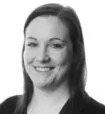- within Immigration topic(s)
Prior to the Covid-19 pandemic, the majority of patient monitoring was done in person, enabling the checking of blood pressure and so on at each appointment. The the pandemic brought sudden limitations on in-person contact, meaning that the medical profession quickly needed to find another way to operate, and a report by Definitive Healthcare shows that even into 2022, after the pandemic had largely passed, insurance reimbursement claims in the US for remote patient monitoring costs continued to rise.
Given the nature of the insurance-based medical system in the United States, it's easier to track data like this, because specific codes have to be used when claiming reimbursements. This contrasts against the UK healthcare system, where specific information such as this is less readily available, but for anyone seeking a medical appointment in recent years, the rate at which telephone consultations are offered has definitely increased.
Along with this, as you would expect, the use of home monitoring devices has also increased, and the ability to share data directly from your device (or via your computer) with your doctor electronically, will undoubtedly streamline the process.
Where a monitoring device has been around for a while, its manufacturer will generally have protection in place for their trade mark covering those goods. However, where new data sharing methods are introduced, existing coverage may not be enough. If that protection does not include coverage of new goods and services such as software, smartphone apps, and sharing platforms, they should look to secure fresh registrations for these goods at the earliest opportunity, to preserve their rights.
From January 2019 to November 2022, claims volumes across 10 CMS codes for remote monitoring rose by more than 1,200%. The period covers pivotal years for the RPM sector, in which the pandemic drove demand for remote monitoring technologies and the CMS created nine new reimbursement codes.
The content of this article is intended to provide a general guide to the subject matter. Specialist advice should be sought about your specific circumstances.


